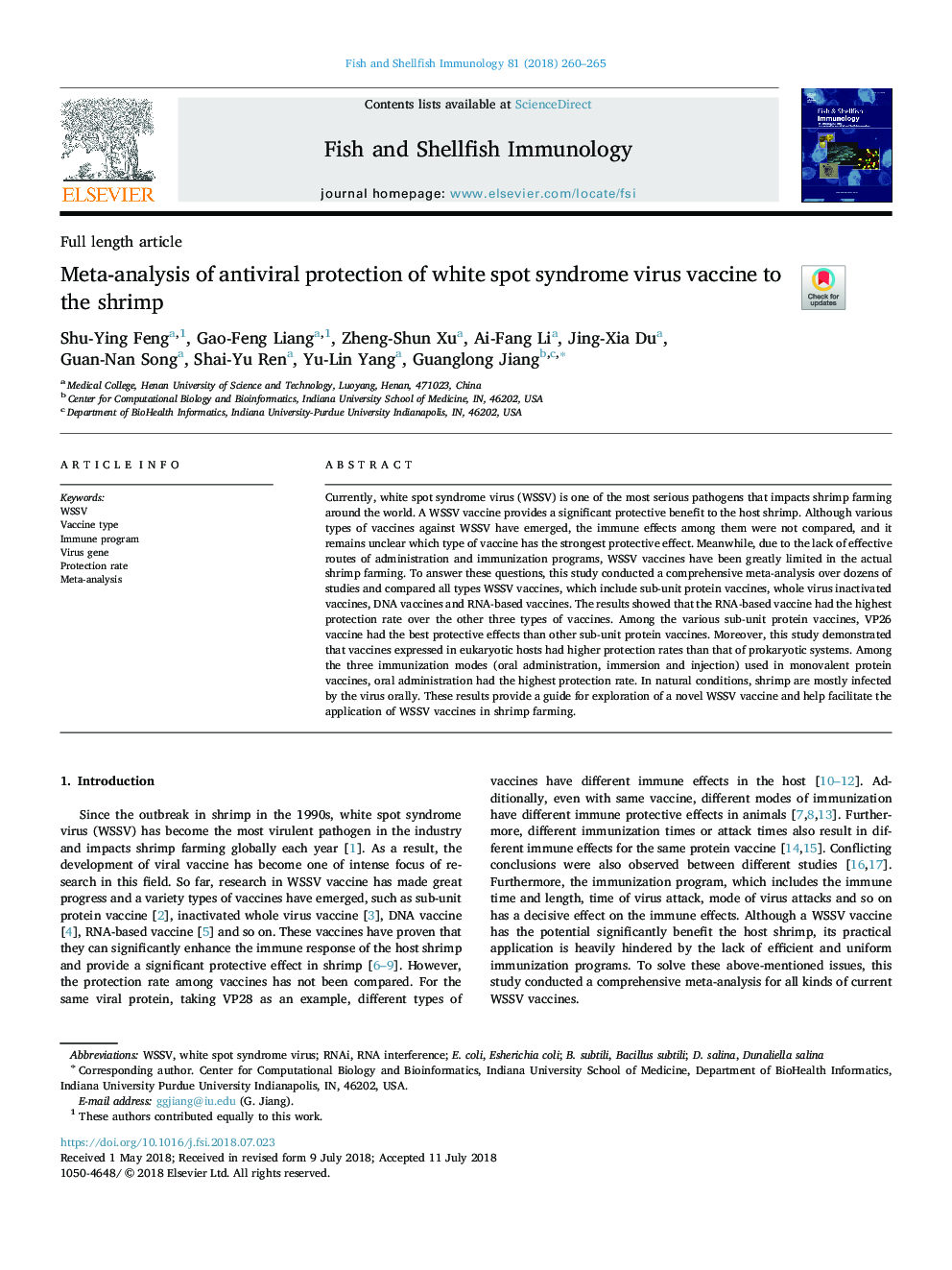| Article ID | Journal | Published Year | Pages | File Type |
|---|---|---|---|---|
| 8498132 | Fish & Shellfish Immunology | 2018 | 6 Pages |
Abstract
Currently, white spot syndrome virus (WSSV) is one of the most serious pathogens that impacts shrimp farming around the world. A WSSV vaccine provides a significant protective benefit to the host shrimp. Although various types of vaccines against WSSV have emerged, the immune effects among them were not compared, and it remains unclear which type of vaccine has the strongest protective effect. Meanwhile, due to the lack of effective routes of administration and immunization programs, WSSV vaccines have been greatly limited in the actual shrimp farming. To answer these questions, this study conducted a comprehensive meta-analysis over dozens of studies and compared all types WSSV vaccines, which include sub-unit protein vaccines, whole virus inactivated vaccines, DNA vaccines and RNA-based vaccines. The results showed that the RNA-based vaccine had the highest protection rate over the other three types of vaccines. Among the various sub-unit protein vaccines, VP26 vaccine had the best protective effects than other sub-unit protein vaccines. Moreover, this study demonstrated that vaccines expressed in eukaryotic hosts had higher protection rates than that of prokaryotic systems. Among the three immunization modes (oral administration, immersion and injection) used in monovalent protein vaccines, oral administration had the highest protection rate. In natural conditions, shrimp are mostly infected by the virus orally. These results provide a guide for exploration of a novel WSSV vaccine and help facilitate the application of WSSV vaccines in shrimp farming.
Related Topics
Life Sciences
Agricultural and Biological Sciences
Aquatic Science
Authors
Shu-Ying Feng, Gao-Feng Liang, Zheng-Shun Xu, Ai-Fang Li, Jing-Xia Du, Guan-Nan Song, Shai-Yu Ren, Yu-Lin Yang, Guanglong Jiang,
